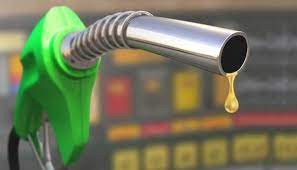The average retail price of Automotive Gas Oil, commonly known as diesel, experienced a notable decrease of 5.71% in July 2024, according to the National Bureau of Statistics (NBS). The price fell from ₦1,462.98 per liter in June 2024 to ₦1,379.48 per liter in July 2024, offering some relief to consumers across Nigeria.
Despite the month-on-month decrease, the year-on-year data tells a different story. Compared to July 2023, when diesel was priced at ₦794.48 per liter, there has been a significant 73.63% increase in the average price. This highlights the persistent upward trend in diesel costs over the past year, driven by various economic factors.
Regional Price Variations
The NBS report also revealed significant differences in diesel prices across different states. Taraba State recorded the highest average price at ₦1,721.79 per liter, followed by Borno State at ₦1,694.17 and Bauchi State at ₦1,619.54. These figures indicate the regional disparities in diesel costs, influenced by factors such as transportation costs and supply chain efficiencies.
On the other end of the spectrum, Kogi State had the lowest average diesel price at ₦1,186.31 per liter, with Kano State and Osun State following at ₦1,211.11 and ₦1,246.82 per liter, respectively. These lower prices provide some respite to consumers in these areas, where diesel remains more affordable compared to other regions.
When examined by zone, the Northeast Zone had the highest average price at ₦1,600.85 per liter, while the Southwest Zone enjoyed the lowest average price at ₦1,266.57 per liter.
Nigeria’s Dependence on Imported Diesel
Despite being one of Africa’s leading crude oil producers, Nigeria continues to rely heavily on imported refined products, including diesel. The country’s three refineries have been non-operational for decades, leaving it vulnerable to international market prices and global trade fluctuations.
The much-anticipated Dangote refinery, which began supplying diesel in April 2024, was expected to be a turning point for the industry. Initially, the refinery supplied diesel to local marketers at ₦940 per liter. However, subsequent currency devaluation and rising international diesel prices saw costs soar to as much as ₦1,200 per liter. The refinery, which is still under regulatory scrutiny, is hoped to stabilize diesel prices in the future as it reaches full operational capacity.
Government Measures and Future Outlook
In an effort to control rising diesel prices, the Nigerian government had previously suspended Value Added Tax (VAT) on diesel imports for six months, a measure that expired in April 2024. There have been discussions about extending this exemption, but no official statement has been released.
Additionally, the Minister of Finance, Wale Edun, has hinted at forthcoming duty waivers as part of a broader inflation reduction strategy. These measures, if implemented, could provide some relief to consumers and help stabilize diesel prices in the coming months.
As Nigeria navigates these challenges, the market is closely watching the impact of the Dangote refinery and government policies on diesel prices and overall inflation.










